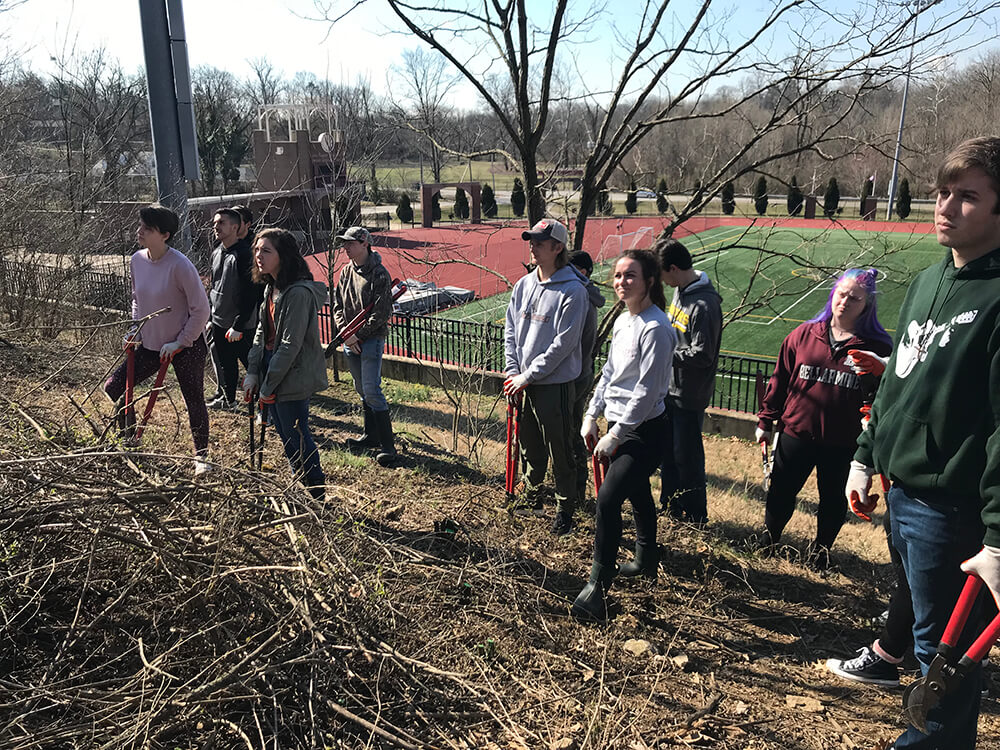Co-Curricular

The Terra Learning Community (TLC) focuses on the theme “Sustainability: From Words to Action.” The community
is open to students of any major and is designed for students that have a strong interest in the issues of sustainability. The students in the TLC will support each other in the courses they take, in environmentally conscious living, civic engagement
benefiting the greater community and activities that align with the theme of TLC, such as a visit to a farm-to-table restaurant, projects in the Bellarmine garden, and outdoor activities.
Registered student organizations related to sustainability and environmental issues provide opportunities for students to get involved. Some examples are the Green Knights, Food Advocacy Network, and the Vegan and Vegetarian Outreach clubs. Students can
also get involved in the Student Government Association’s Environmental Committee and the campus-wide Sustainability Committee.
Each year, Bellarmine hosts various campus environmental programming events around the Feast of St. Frances, Earth Day, and Arbor Day, and we host two speakers each year in our Sustainability Series.